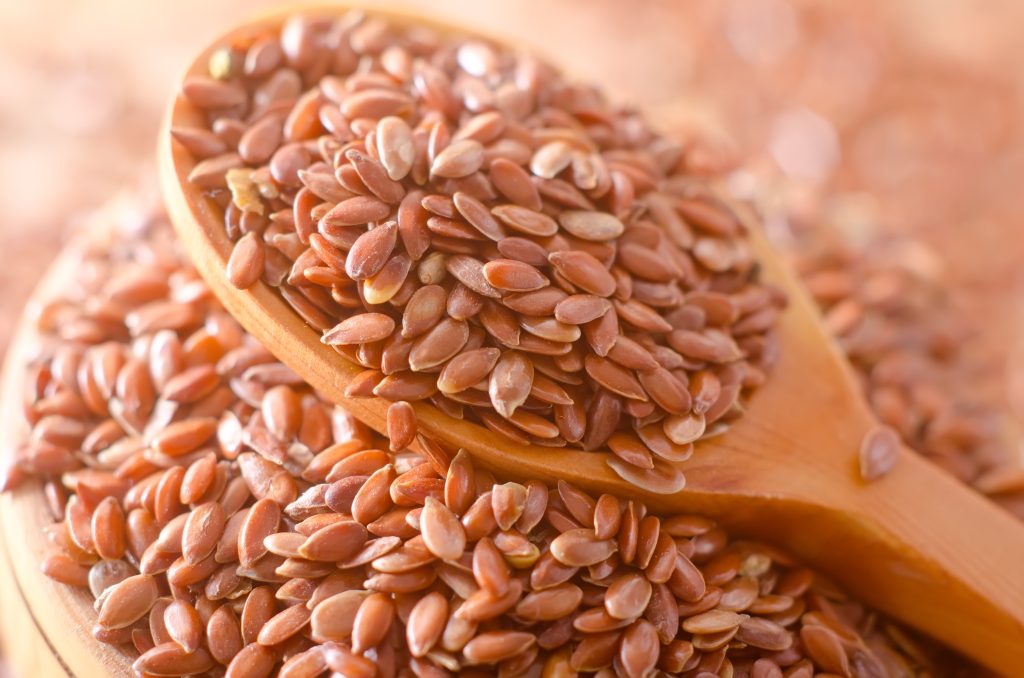Health Benefits of Flaxseed
- BARE Creations
- August 11, 2022
- 5:27 pm
- No Comments

Flaxseeds have been highly regarded for their health inducing qualities for centuries. Originating from the middle east, they come from the flax plant, growing up to 60 cm. In recent years they are emerging as a superfood since studies show they might help fight heart disease, stroke, diabetes, and breast cancer. In the nutrition world, it’s considered a staple and renowned for being a excellent source of Omega-3 fatty acids, lignans and fiber.
Rich in omega-3 fatty acids
Omega-3 fatty acids are the good kind of fats and are heart friendly. Eating flax seeds is especially necessary if you are a vegetarian or avoid seafood. A 2010 study by the Canadian Journal of Cardiology showed that greater use of omega-3 fatty acids is an excellent nutritional therapy that will demonstrate cardiovascular benefits in the long run.
High Fiber
According to recent reports in the United States most people are eating half of the recommended amount of fiber and its their healthy badly. Flax seeds contains 6 grams per serving (2 tablespoons) of fiber. That is about 20% of the daily recommended intake for adults.
Prevents constipation
The soluble fiber in flax seeds dissolve easily in water, softening stools and increasing gut motility. The insoluble fiber flexes the intestinal walls, triggers contractions, increases bowel bulk and ultimately improves digestion.
Improves heart health
Flaxseeds have the ability to control cholesterol levels, a biomarker of heart disease. A group of diabetic patients consumed 1 tablespoon of flax seeds daily for 3 months. The result was an increase in HDL- good cholesterol and a reduction in LDL- bad cholesterol. They have also been proved to reduce stroke risk. It is due to their plant-based ALA fatty acids as an end product. Research by the Canadian science publishing show that dietary flax seed has a cardio-protective effect by improving vascular relaxation responses. Furthermore, the ALA fatty acids also contribute to the anti-atherogenic results via the antiproliferative and anti-inflammatory effects.
Regulates blood pressure
Those already taking hypertensive medication and adding flaxseeds to their daily diet claimed it worked as a catalyst. Health professionals have recommended 30 grams (3 tablespoons) of flaxseeds daily for this particular purpose.
Improves blood sugar levels
Recently, diabetes, primarily type 2, has been among the top health problems worldwide. But you can reduce the risk of diabetes by consuming flaxseeds. The insoluble fiber in the seeds gives it a blood sugar lowering property. It balances digestions and hence the release of glucose into the bloodstream.
Helps in weight management
The high fiber content keeps you fuller longer and supress cravings of unhealthy food. This feature triggers the hormones that control appetite by keeping hunger at bay and thus helps in the weight loss journey.
High quality protein
Flaxseed contains 2 grams of protein per tablespoon and serve as a great alternative for vegetarians. A study by the journal of food science and technology showed that dehulled flax seeds contain a high level of protein and low level of carbohydrates. The three main end products of the protein in flaxseed are arginine, aspartic acid, and glutamic acid. This trio plays an essential part in hormone production, release, and normal nervous system function.
Anti-cancer properties
Flaxseeds are the richest know source of lignans, 9-30 mg/g. This compound has antioxidant and estrogen properties. Both properties reduce the risk of cancer and improve health. Post-menopausal women have greatly benefitted from eating flaxseed since observational studies have shown that it reduces the risk of breast cancer due to the estrogen content. Flaxseeds have also helped men since lignans possess an anti-tumour property for hormone-sensitive cancers.
Eases arthritis
Research shows that foods containing omega-3 fatty acids can help arthritis symptoms by reducing inflammation.
Reduces radiation impact
A study published in the journal of cancer biology and therapy showed that flaxseed might be clinically beneficial as an agent to increase the therapeutic index by increasing the radiation tolerance of lung tissues.
Reduces hot flashes
A small observational study found that women halved their hot flash occurrences by consuming 4 tablespoons of flaxseed daily. Since it also contains estrogen, flaxseed may also improve mood and quality life.
 FREE SHIPPING WITHIN CANADA ON ORDERS OVER $35
FREE SHIPPING WITHIN CANADA ON ORDERS OVER $35
